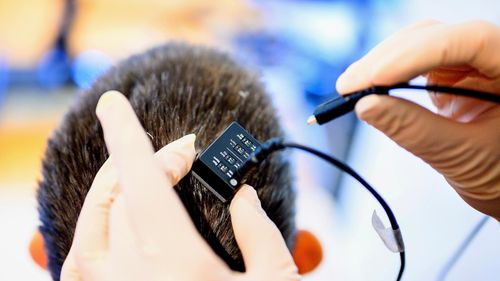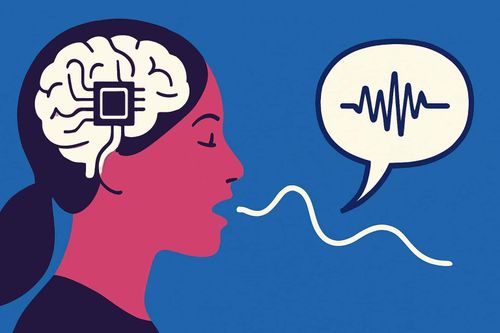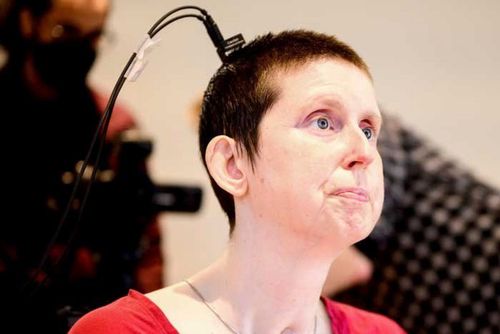Speech now streaming from brains in real-time

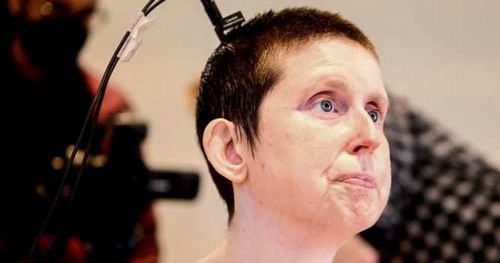
Scientists have developed a device that can translate thoughts about speech into spoken words in real time. Although it’s still experimental, they hope the brain-computer interface could someday help give voice to those unable to speak. A new study described testing the device on a 47-year-old woman with quadriplegia who couldn’t speak for 18 years after a stroke. Doctors implanted it in her brain during surgery as part of a clinical trial.
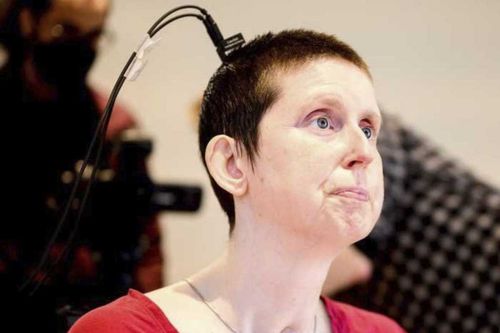
Scientists have developed a device that can translate thoughts about speech into spoken words in real time. Although it’s still experimental, they hope the brain-computer interface could someday help give voice to those unable to speak. A new study described testing the device on a 47-year-old woman with quadriplegia who couldn’t speak for 18 years after a stroke. Doctors implanted it in her brain during surgery as part of a clinical trial. It “converts her intent to speak into fluent sentences,” said Gopala Anumanchipalli, a co-author of the study published Monday in the journal Nature Neuroscience.
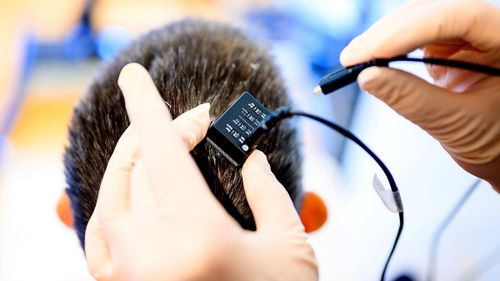
A new device that 'reads' a person's mind can turn their thoughts into speech. A team of engineers from the University of California invented a breakthrough brain-computer interface (BCI) system with electrodes that get adhered to a person's scalp to measure brain activity and brainwaves. The brainwaves are analyzed and then converted into audible speech by a computer, which then translates them to spoken words read aloud by AI. The researchers believe the new technology could restore paralyzed people’s ability to communicate by converting the brain activity from the motor cortex into audible speech.

